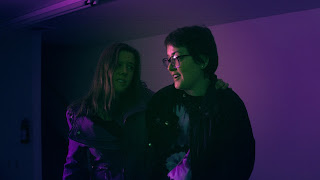Superhero-Movie Bubble? 2 of 3
Note: This three-part examination of a superhero bubble was originally written in the summer of 2018 and appeared on the now defunct Perro Worldwide Comics "Comics Archive" blog. Due to this report's continued relevance, it is being republished here, in its entirety.
***
Is there a Superhero-Movie Bubble - Part II
Written by Chip Perro
Pinpointing the start of the superhero-movie explosion can be tricky, but I think a good place to mark it would be with the release of Bryant Singer's X-Men film in 2000, followed closely by Sam Raimi's Spider-Man in 2002.
Schumacher killed superhero movies with Batman and Robin three years earlier, and it gave time for audiences to take a breath, and for creators to try something new.
It was a bold idea...
What if comic book fans were right? What if these films were written seriously? What it they were made with both kids and adults in mind?
What if comic book fans were right? What if these films were written seriously? What it they were made with both kids and adults in mind?
X-Men proved that superhero movies could be more than kid-fare adventure, and Spider-Man proved that a hero, in a bright skintight costume could be cool, if properly written. For so long, superhero movies tried to distance themselves from their source material, swapping bright colored costumes for black leather. If they wore spandex, it was campy, if they wore leather, it was a serious reimagining.
X-Men got it right with story, but missed the mark on the visual style. Spider-Man took it a step further. A serious comic-inspired story along with the bright colors of the page.
It worked, and the modern Superhero-Movie kicked off with a bang!
Between 2002-2008, a boom of superhero movies were produced by both Marvel and DC, as well as a few notable hits with third party companies. Some were good, and some were great. Standouts include: X2, Spider-Man 2, Batman Begins, and The Dark Knight.
X-Men got it right with story, but missed the mark on the visual style. Spider-Man took it a step further. A serious comic-inspired story along with the bright colors of the page.
It worked, and the modern Superhero-Movie kicked off with a bang!
Between 2002-2008, a boom of superhero movies were produced by both Marvel and DC, as well as a few notable hits with third party companies. Some were good, and some were great. Standouts include: X2, Spider-Man 2, Batman Begins, and The Dark Knight.
Then, in 2008, Iron-Man was released, and it was a game-changer. Many people think the modern Superhero-Movie movement happened here. But the concept of the serious superhero movie had already been established.
The shared universe was the next natural evolution... Something that had existed in comics since the 1940's was applied to the screen, and it was a huge success. Since Iron-Man, the MCU has dominated the superhero box office, and there's no end in sight! This concept is so powerful that it has been copied, with varying levels of success, by multiple production companies, and today, anyone who's anyone wants a cinematic universe to call their own.
Times are good!
Times are good!
So... With the history lesson over... Why the bubble? We got what we wanted. Serious movies. Characters that look like their comic book counterparts. A shared universe. What could possibly be the problem?
As shocking as it sounds, it's the shared universe itself that will be the death of the modern Superhero-Movie movement.
If Marvel gave us the template for what a shared universe should look like on film, then they'll also be showing us what it looks like when it collapses.
I think the bubble gets poked with its first hole upon the release of Avengers 4.
After that, we're looking at multiple actors retiring from the franchise. New characters will replace old characters as leading figures, and I wouldn't be at all surprised if Marvel plays with continuity, re-writing the MCU for the next generation. When that happens, a majority of fans won't like it, and they'll walk away.
After that, we're looking at multiple actors retiring from the franchise. New characters will replace old characters as leading figures, and I wouldn't be at all surprised if Marvel plays with continuity, re-writing the MCU for the next generation. When that happens, a majority of fans won't like it, and they'll walk away.
This is the point where you might think that I'm wrong. You'll say that Marvel has a plan post-Avengers 4. New characters will replace the old that we'll like better. Spider-Man for example... This whole merger with Fox will give Marvel access to X-Men. They'll have MCU movies ready for the next decade and beyond!
Sure... But let's go back and look at the source material these characters lived in before leaping to the screen. There's a problem with that thinking.
It isn't just about replacing old characters with new. A problem, by the way, the comics don't have. If we look at comic books, continuity wiping events happen fairly regularly. And they happen when the story gets so inflated, so mired down in its own continuity, that telling a fresh, never-before-seen story is near impossible. Wiping continuity allows writers the chance to re-tell hero origins, to re-write the rules, and to begin all over again.
When this is done, two things happen. Fans of the previous continuity become alienated. Then they stop reading. New fans replace the old fans, but it doesn't happen fast enough. And then, it's only a matter of time before the new continuity is wiped again, or blended with the old continuity, or in some other way rewritten. The problem only gets worse. And I think this is a reason, year after year, comic sales continue to sink. There is no trust that the story is important. And new writers regularly rewrite what old writers have written because they want to put their own spin on the character.
In the world of comics, this pattern is commonplace. It isn't good, and the numbers sink year after year, but it's a slow falloff, and comics can weather failed reboots better than film. They're far less expensive to produce, and creative mistakes are forgiven in time with a proper course correct. Fans of the genre know how it works. They don't like it, but they get it. In film, audiences won't. And there will be no forgiveness. The cost of a bad movie is also much higher than the cost of a bad comic.
The ugly truth about a shared universe is that it's not the bloated continuity that becomes the problem. It's that the story never ends. It continues, year after year, with new stories beginning just as old stories are ending. The bloated continuity is simply a symptom of the lack of a conclusion. The story must continue, so it gets more and more warped until the new is a pale reflection of the old. Without resolution, no matter how expertly crafted a story might be, audiences will eventually walk away. Add to this the problem of replacing cast members (which as I said isn't even a problem in the comics) and the shared film-universe is doomed.
We want closure, as a reader, and as a viewer. Disney has no plans to wrap up the MCU. No final movie. So it's only a matter of time before audiences get bored. Before they realize that the next new villain isn't anymore interesting than the last new villain. Before they realize that what came before can't be topped. That, to use an old expression, they've seen it all before.
Ironically, the end of the MCU will be the result of a lack of end of the MCU.
The bubble won't pop with a single fantastically bad superhero movie. Not like it did with Batman and Robin in 1997. But it will deflate slowly, with more and more lackluster movies producing more and more lackluster box office returns.
Then, to use another old expression, it will end not with a bang, but with a whimper...
So, what happens then?
Comic book superheroes will retreat back into the comics. Like they continue to be, comics will remain a niche market, but the best possible place for superheroes to endure. The DC and Marvel heroes will thrive on the page. New creators will continue to write old characters, and if we're lucky, every few years there will be a really inventive story or two worth checking out. The problems of continuity and reboots will still plague comics. To endure, this will have to be fixed. But it's an old problem, and the falloff is slow enough that there's still time to fix it.
On film, the Superhero-Movie boom will be part of history. Comic & sci-fi entertainment will change. The superhero, as a concept, will be considered out of touch. Younger generations won't be as captivated by Marvel or DC. It'll be something new. New characters, new stories, and maybe most importantly, new creators. Effectively, a new sub-genre will be created.
I know what that sub-genre will look like. What it is going to be. But if I told you, I'd be giving away too much...



Comments
Post a Comment